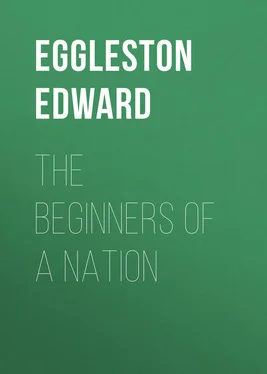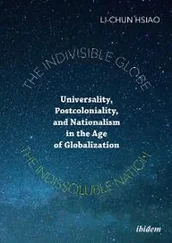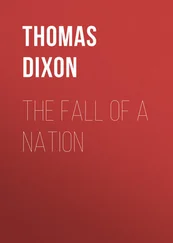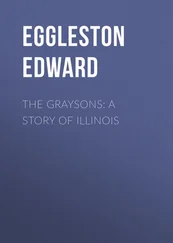Edward Eggleston - The Beginners of a Nation
Здесь есть возможность читать онлайн «Edward Eggleston - The Beginners of a Nation» — ознакомительный отрывок электронной книги совершенно бесплатно, а после прочтения отрывка купить полную версию. В некоторых случаях можно слушать аудио, скачать через торрент в формате fb2 и присутствует краткое содержание. Жанр: История, foreign_antique, foreign_prose, на английском языке. Описание произведения, (предисловие) а так же отзывы посетителей доступны на портале библиотеки ЛибКат.
- Название:The Beginners of a Nation
- Автор:
- Жанр:
- Год:неизвестен
- ISBN:нет данных
- Рейтинг книги:4 / 5. Голосов: 1
-
Избранное:Добавить в избранное
- Отзывы:
-
Ваша оценка:
- 80
- 1
- 2
- 3
- 4
- 5
The Beginners of a Nation: краткое содержание, описание и аннотация
Предлагаем к чтению аннотацию, описание, краткое содержание или предисловие (зависит от того, что написал сам автор книги «The Beginners of a Nation»). Если вы не нашли необходимую информацию о книге — напишите в комментариях, мы постараемся отыскать её.
The Beginners of a Nation — читать онлайн ознакомительный отрывок
Ниже представлен текст книги, разбитый по страницам. Система сохранения места последней прочитанной страницы, позволяет с удобством читать онлайн бесплатно книгу «The Beginners of a Nation», без необходимости каждый раз заново искать на чём Вы остановились. Поставьте закладку, и сможете в любой момент перейти на страницу, на которой закончили чтение.
Интервал:
Закладка:
Formality at Plymouth. Even at a later date in the rather hungry little Pilgrim colony at Plymouth almost as much ceremony was observed, though the people were extreme Puritans without rank. At beat of drum on Sunday morning the men came to Captain Standish's door with their cloaks on, each bearing a musket or matchlock. They proceeded to church three abreast, led by a sergeant. In the rear walked the governor, in a long robe. On his right was Elder Brewster, wearing a cloak. De Rasieres's letter, 2d N. Y. Hist. Coll., ii, 352. On the governor's left was Captain Miles Standish, who also wore a cloak and side arms, and carried a small cane as a sort of baton of authority perhaps. Thus "they march in good order, and each sets his arms down near him."
Puritanism an outgrowth of the time. It was only in an age such as this that resistance to the celebration of rites and the observance of forms could be made a capital article of faith by the Puritan, and later by the Quaker. The wearing of a surplice, the propriety of doffing the hat on certain occasions, was a matter for scruple and violent debate, for the grave consideration of the lawgiver and magistrate, and for severe penalties.
III
Origin of the Puritan movement. Fuller's Ch. Hist., book v, sec. iv, 27, 28. In the brief Protestant reign of Edward VI there were those who objected to "the vestments," and one may even find what were afterward called Puritan opinions condemned among current errors in the twenty-eighth year of Henry VIII; but Puritanism – as a party protest against pomp and ceremonialism in religious worship – had its origin in the persecution of Queen Mary's time. 1536. The English Protestants who fled from that fiery ordeal found refuge chiefly in Protestant cities of the Continent. Strasburg, Frankfort, Basel, Zurich, and Geneva were the places to which these English exiles mainly resorted. Zurich and Strasburg became cities of refuge for many of those who were to become leaders of the Anglican or Conservative party, while others who tended to what were afterward called Puritan views went sooner or later to Geneva, where Calvin was the dominant influence.
A. D. 1553. In the cities in which they found safety the exiles organized English churches. The English exiles. More remarkable religious communities were never gathered into single congregations. Five bishops and five deans of the English Church, and more than fifty eminent doctors of divinity, with younger men who were destined to play a leading part in the future, were comprised in these little churches. Such communities soon became centers of animated discussion and debate.
Outbreak of dissension. During the preceding reign of King Edward VI, English Protestantism had been forced into many compromises within itself. No form of religious life can become national without exacting of its advocates of differing shades of opinion many sacrifices for the sake of unity; but now that the leaders of English Protestantism were in exile they found themselves in a measure freed from motives of policy and with leisure to develop and apply their theories. A passion for the ideal thus suddenly unchained easily becomes rampant. There sprang up swiftly a dispute between the church in Strasburg and the church in Frankfort on matters of government. The reformatory spirit is rarely conciliatory, and in its excess and overflow it is wont to be pragmatic and impertinent. Some of the reformers of Strasburg felt bound to go over to Frankfort and re-reform the reformed English church there; and the little English community in Frankfort was soon torn asunder between the followers of Richard Cox and those of John Knox – the same who was afterward so famous in the Scottish reformation.
Character of the debates at Frankfort. This dispute in Frankfort between the Coxans and the Knoxans, as they were called, had all the characteristics that render church quarrels odious. One finds in it the bitterness of slanderous violence – the little deceptions and unmanly treacheries that characterize such debates and disclose the sorry threadbareness of human saintship even in exiles and martyrs for conscience' sake. But, petty as were these squabbles at Frankfort, they produced results of the first magnitude. Small things change the whole course of history when they lie near the fountain head of a great current. From the conflicting factions in the church of the exiles at Frankfort were evolved the opposing parties that were to give character to English Protestantism, and to modify profoundly the history of England and as profoundly the history of the United States.
The rise of the two great parties. In the contentions of the English at Frankfort, resulting now in the exiling from the city of one beaten minority and now in the departure of another, and in the driving away of one leading disputant after another, there appeared at length the features of the two great parties of English Protestantism face to face for the first time. One of these parties tried to hold all of antique ritual that the Protestant conscience could be made to bear, insisted upon the superior authority of the clergy, and sought to disturb as little as possible the ancient order of the English church. On the other hand, in the rapid changes produced by the Frankfort contentions, the tendency of the ultra wing of the Protestants to the notion of a local and independent church and to a democratic church government was already apparent. 38Even the peculiarity of two ministers presiding over one church, which was cherished later in New England, appeared among the English at Frankfort and Geneva at this time.
A purified ritual. While attempting to mediate between the parties at Frankfort, Calvin expressed his preference for a ritual of greater purity than that established by the English Prayer Book of King Edward's time. Extreme Protestants rallied round this ideal of a liturgy purified of human tradition. It was some years later, after the Frankfort church had been dissolved and the exiles had returned to England, that this party came to be known by the name of Puritan – that is, a party not so much bent on purity of conduct as on purifying Protestant worship from mediæval forms. 39
Return of the exilies, 1558. After the death of Mary and the accession of Elizabeth the English Protestants returned to their own country. The two great parties that were to divide the English church had already begun to crystallize. Those who had settled at Strasburg and Zurich came back hoping to re-establish the Anglican Church on the conservative basis of the Prayer Book of Edward VI. Those who returned from Basel and Geneva had caught the spirit of the Calvinistic churches, and wished to push the reformation to a more logical extreme; while the Frankfort church, or what remained of it, had been storm-driven well-nigh to a theory of congregational independence in church government.
Results. The petty squabbles of the English exiles, transplanted to England, grew into bitter feuds and brought forth persecutions and political struggles. The settlement of New England, the battles of Marston Moor and Naseby, the temporary overthrow of the English monarchy, the growth of non-conformity, the modification of the English Constitution and of all English life, were germinally present in the differences between the exiles at Zurich and those at Geneva, and in the squabbles of Cox and Knox, of Whithead and Horne at Frankfort-on-the-Main about gowns and litanies and the authority of the priest. It is not often that a great historical movement can be traced through a single rill to its rise at the fountain head.
IV
The Puritan debate. The theological debates that fill so large a place in the history of the first half of the sixteenth century in Europe were mainly concerned with speculative dogmas. However futile controversies may seem that seek to reduce to formulas the relations between God and man, they have at least a topical dignity. But the debates about ceremonies and vestments which the exiles brought back to England from the Continent, and which held first place there during the reign of Elizabeth and James, were bitter without being serious. A life-and-death struggle concerning the wearing of "white surplices" or the making of the sign of the cross in baptism can not but seem frivolous to the modern mind. Certayne Qvestions concerning silk or vvool in the high priest's ephod, 1605. Learned scholars like Broughton and Ainsworth thought it not beneath them to write tractates discussing the material of which the ephod of a Jewish high priest was made. It was learnedly demonstrated that the ephod was of silk, and there were sober essays on the linsey-woolsey side of that controversy. To the fine-spun mind of that time the character of the Jewish ephod was thought to settle the propriety of the Christian surplice. To the modern reader the whole debate about vestments and liturgies would be amusing if it were not so tedious. It is necessary to steady one's judgment of that age by remembering that deeper things sometimes lay concealed under these disputes regarding the contemptible mint and cumin of ecclesiasticism. Puritanism at its rise was an effort to escape from formalism, the outgrowth of an aspiration for greater spirituality in worship; but it gradually passed into an opposite formalism as rigid as that from which it had escaped.
Читать дальшеИнтервал:
Закладка:
Похожие книги на «The Beginners of a Nation»
Представляем Вашему вниманию похожие книги на «The Beginners of a Nation» списком для выбора. Мы отобрали схожую по названию и смыслу литературу в надежде предоставить читателям больше вариантов отыскать новые, интересные, ещё непрочитанные произведения.
Обсуждение, отзывы о книге «The Beginners of a Nation» и просто собственные мнения читателей. Оставьте ваши комментарии, напишите, что Вы думаете о произведении, его смысле или главных героях. Укажите что конкретно понравилось, а что нет, и почему Вы так считаете.












